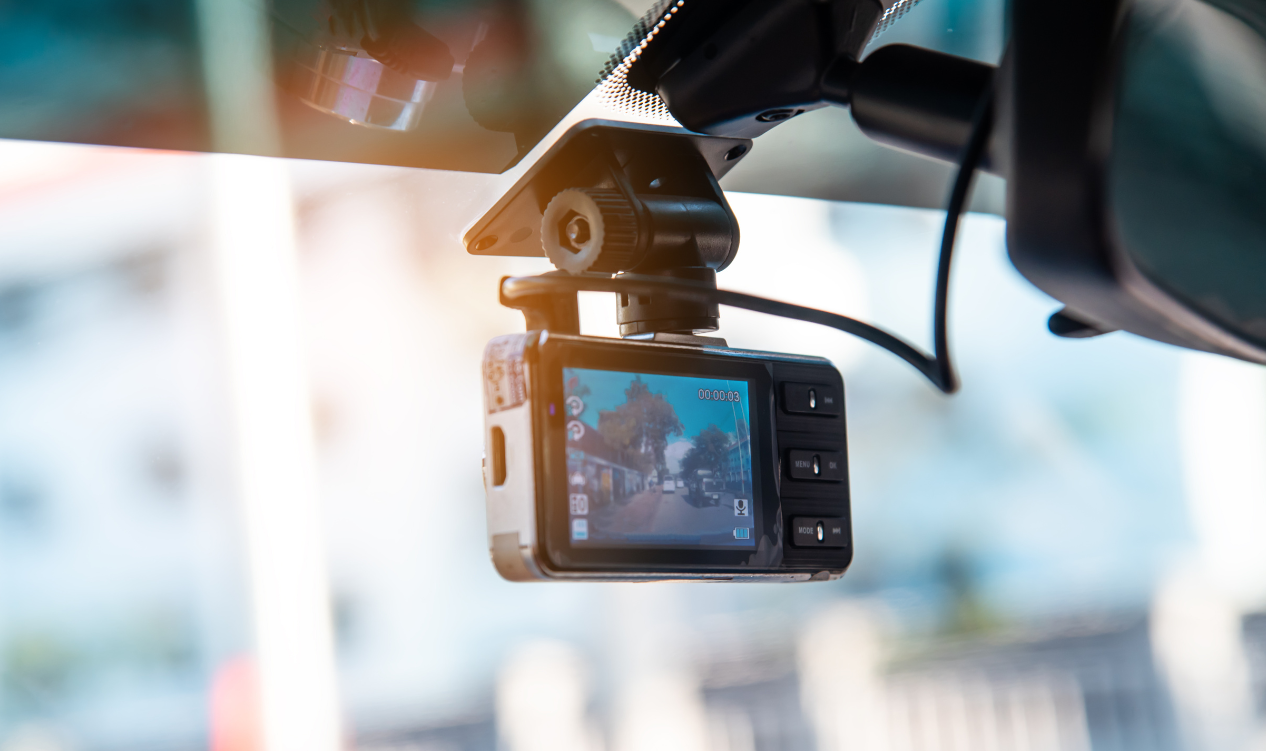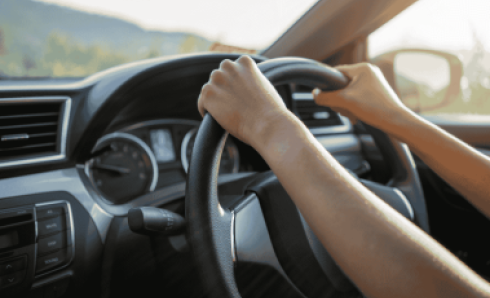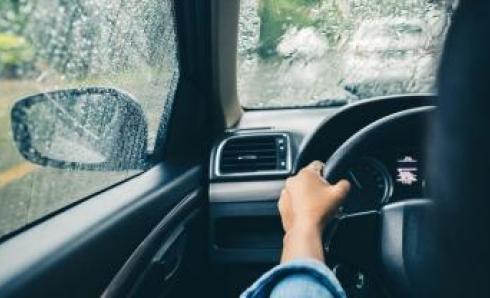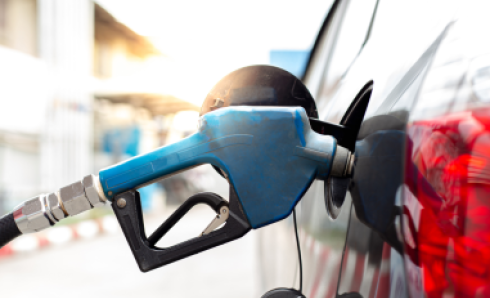Dashcams, once rarely seen outside the police TV show niche, are now increasingly seen on Irish roads. Their growing popularity has underscored the multiple benefits that they can bring, ranging from heightened security to potential insurance perks.
Dashcams may still feel like an unnecessary extravagance for many, but with more and more of our customers joining the revolution, we thought we would go through some of the main advantages having one brings to you and your vehicle.
What are the Benefits of Installing a Dashcam?
Dashcams are an ever more popular tool for enhancing driver safety while offering a range of benefits, from legal protection to helping foster responsible driving habits.
Enhanced Road Safety
Dashcams contribute significantly to road safety by documenting potential hazards and incidents. A study by the Journal of Safety Research reports an 86% decrease in accident-related costs when dash cams with driver feedback were used. Knowing that your actions are being recorded has a psychological effect, nudging drivers towards more cautious behaviour and reducing the likelihood of accidents.
Assistance in Insurance Claim Resolution
In the event of an accident, dashcam footage can be crucial in resolving insurance claims swiftly and fairly. You can't argue with hard video evidence, and they can clear up the matter in a single viewing for disputes of responsibility. It might not always feel like a good outcome - especially if you're in the wrong - but it will at least be fair.
Deterrence of Fraudulent Claims
Dashcam footage can effectively deter fraudulent claims, a concern for drivers and insurers. By capturing real-time events, dashcams protect innocent drivers from being implicated in false claims, such as staged accidents or exaggerated damages. Insurers can use the footage if there are any doubts about a claim's accuracy.
Crucial Evidence in Legal Proceedings
In legal disputes arising from road incidents, dashcam footage can serve as crucial evidence, often carrying significant weight in Irish courts. The objective perspective offered by video evidence can be pivotal in determining the outcome of legal proceedings.
Parking Monitoring
Modern dashcams often come equipped with parking mode features, enabling continuous monitoring of your vehicle when parked. This function is particularly valuable in guarding against theft, vandalism, or hit-and-run incidents, providing peace of mind even when you're away from your vehicle.
Promotion of Safer Driving Habits
The presence of a dashcam encourages safer driving habits by making drivers more conscious of their actions on the road. The footage can also be used for self-assessment, allowing drivers to review and improve their own driving habits and techniques.
What Legal Aspects Should I Consider When Using Dashcam Footage for Insurance Claims?
Understanding the legal framework surrounding dashcam usage in Ireland is essential, especially concerning privacy concerns and how the footage can legally be used.
Privacy and Data Protection Laws
Under Irish law, it's imperative to balance collecting evidence and respecting privacy. Drivers using dashcams must be mindful of privacy and data protection regulations when recording and sharing footage. Here are a few of the most important points taken from the Data Protection Commission:
- A clearly visible sign, sticker, or other indication on and/or inside the vehicle, as applicable, should indicate that recording is taking place.
- A policy detailing contact details, the legal basis for collecting the images or audio of others, the purposes for which the data is being used, and how long it will be retained should be made available.
- In the event of an accident, you should advise the other party that you have recorded footage of the accident.
- Drivers should be able to provide a copy of their data to anyone who requests it within one month.
- Footage should not be retained indefinitely and should be routinely deleted once it is no longer necessary for the purpose for which it was initially collected or any legitimate subsequent purpose.
- Drivers must be aware of and limit who has access to their cameras and any storage devices on which recordings are stored. Data must be kept securely.
Consent for Recording in Public and Private Spaces
The legality of recording in public versus private spaces requires a clear understanding of consent requirements. Dashcams can be used in any public area if their footage is not deemed outside of normal operations, i.e., recordings taken from your own moving vehicle.
Things become more opaque when you step outside of normal operations. For example, you are not allowed to leave your dashcam running while in a car park to record somebody getting in and out of their car.
Admissibility of Footage in Court
Dashcam footage must meet the above quality and relevance criteria to be admissible in court. If any of these are not met, the footage may not be admissible as evidence in legal proceedings.
Disclosure Requirements to Insurance Companies
Drivers have an obligation to disclose relevant dashcam footage to their insurance providers. Transparency in sharing evidence is essential for a fair and thorough assessment of insurance claims. Should an insurance company discover you knowingly withheld dashcam footage of a specific incident, you could be found violating your insurance agreement.
Why Dashcam Specs Matter
When selecting a dashcam, the specifications play a crucial role in the effectiveness and reliability of the footage as evidence. Key factors such as video quality and additional features significantly impact how helpful a dashcam can be in various scenarios.
1. Video Quality and Clarity
High-resolution video is critical for capturing clear and actionable footage, which is vital for insurance claims and legal evidence. When choosing a dashcam, prioritise high resolutions and features that enhance image quality. A grainy image where it looks like it's constantly snowing is not helpful for anybody.
2. Field-of-View Coverage
A wide field-of-view ensures comprehensive coverage of the vehicle's surroundings, capturing more context in the event of an incident. Optimal field-of-view specifications are essential for effective dashcam performance.
3. Night Vision Capabilities
Effective night vision is sometimes needed to record under low-light conditions if you want to protect around the clock. This extra bit of technology will add to the overall price, but it is crucial for capturing usable footage during nighttime.
4. Storage and Loop Recording Features
Recording the footage is just one of the stages. Adequate storage capacity and efficient loop recording ensure that important events are captured and retained. Loop recording is a feature where a dashcam can continue recording even when the memory card is full by deleting older files and keeping newer ones. Selecting a dashcam with ample storage and reliable loop recording functionality is important if you're on the road for long periods.
5. GPS and Motion Sensor Integration
GPS and motion sensors add valuable context to dashcam footage, such as location and speed data, enhancing the comprehensiveness of incident documentation. These features are well worth considering for a more detailed record of events.
How Insurance Companies Verify the Authenticity of Dashcam Footage
Insurance providers use specific methods to authenticate dashcam footage to ensure the integrity of what they're watching.
Date and Time Stamp Verification
Accurate date and time stamps are crucial for establishing the timeline of events in an incident. Insurers verify this information to ensure consistency with claims and other evidence.
Analysis of Video Metadata
Video metadata provides detailed insights into the recording, helping insurers in the authentication process. The relevance of metadata, such as recording settings and device information, is carefully scrutinised for its impact on claims. Examples of metadata might be:
- Date
- Time
- File Name
- Geolocation
- Creation Date
- Creation Author
Cross-Reference with Incident Reports
Dashcam footage is often cross-referenced with incident reports and additional evidence, building a comprehensive case. It's rare that an insurance company will only go on what they've seen in a piece of footage, and this collaborative approach ensures a thorough verification of claims.
Expert Examination for Signs of Tampering
Experts may be hired to detect any signs of tampering or editing in dashcam footage. This isn't particularly easy, but the rapid advancements of deep fakes in recent years mean that insurance companies will always look carefully for evidence of tampering.
How to Submit Dashcam Footage to Insurance Providers
Submitting dashcam footage to insurance providers usually involves a structured process.
1. Confirming Footage Relevance with Your Claim
The first step in the submission process is to assess the relevance of dashcam footage to the specific claim. Consulting with insurance representatives can help determine how valuable the footage might be in supporting your claim.
2. Ensuring Footage is Unedited and Complete
Submitting unedited and complete footage is imperative to maintain the credibility and legal standing of the evidence. Altered footage can compromise the integrity of your claim and lead to legal consequences.
3. Providing Supporting Documentation
Compile supporting documentation, such as incident reports and witness statements, complements dashcam footage. The general rule is: the more varied the supporting evidence, the better.
4. Submission Footage
Every insurance provider has its own protocols and procedures for footage submissions. Speak to your provider to learn how they work, then follow their instructions. Dot the i's, cross the t's - include everything.
Discover Comprehensive Cover for Dashcam Equipped Vehicles at 123.ie
Dashcams are quickly becoming part of mainstream driving culture. Their usefulness has ballooned over the last decade, and insurance companies are increasingly eager to see them in their customer's cars.
123.ie recognises the value of dashcams in enhancing vehicle security and driver safety while acting as an invaluable neutral eye in the event of an accident. So, next time you’re looking for a car insurance quote, contact 123.ie and see how a dashcam might benefit you.





